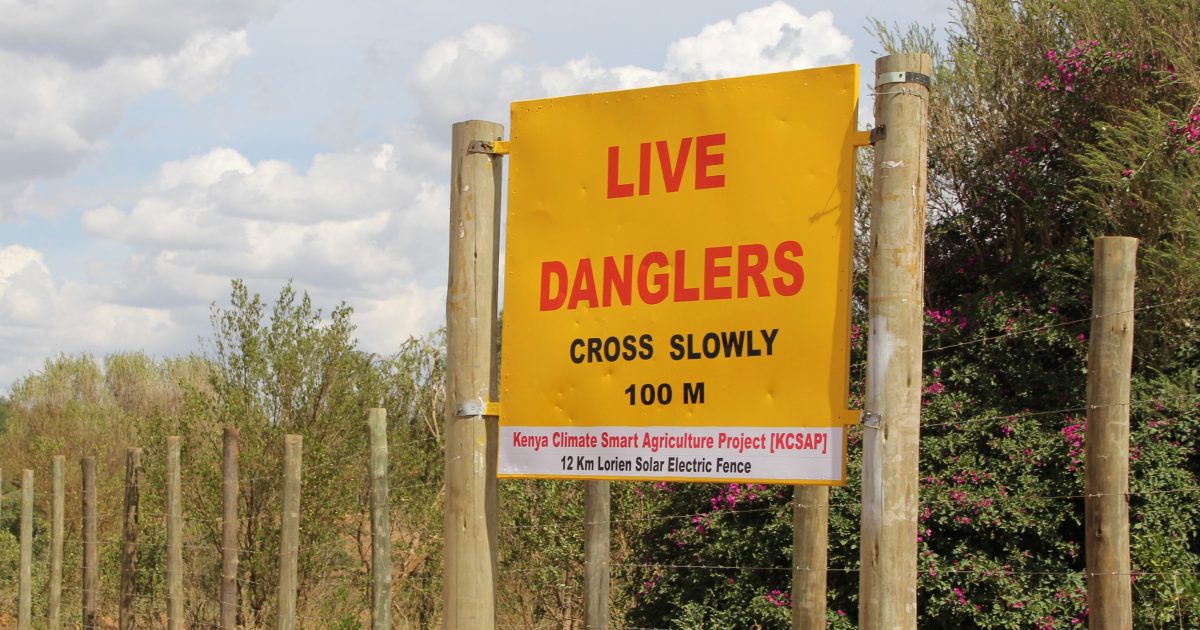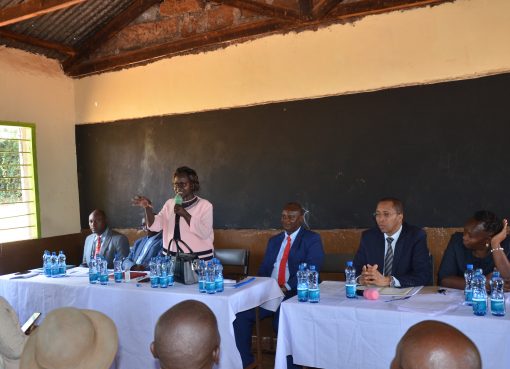For years, farmers from Lorien in Rumuruti ward, Laikipia County have been braving cold nights in order to ensure their crops are not destroyed by elephants that roam in the area freely.
The farmers would also use all manner of crude methods to drive away the wild animals including lighting fire to scare them when they encroach into the farms unnoticed, all aimed at ensuring they harvest what they plant, but sometimes, the colossus animals would destroy hundreds of farms, leaving residents counting losses.

However, this now is the thing of the past after the commissioning of 12 kilometres of solar powered electrical fence at a cost of Sh9 million, covering four villages of Kapkures, Tuigen, Narock and Ol Arinyiro to shield the residents from human-wildlife conflict in the vast Rumuruti ward.
“The project was established due to the challenges brought by elephants encroaching on farm areas. Elephants have been destroying crops and even threatening lives and sometimes killing people,” Joel Murei, Lorien Agroforestry project for sustainability land development Chairperson told KNA.
He revealed that since the fence was erected in the area by Kenya Smart Climate Agriculture project (KSCAP), the project donors, wild animals’ encroachment has reduced by over 80 per cent.
“Since the project was implemented, encroachment has reduced. For instance, since 2020, we have had only five encroachments. It’s a success compared to previous years where human-wild conflict was rampant,” added Murei.
He further noted that despite the ongoing drought in the area, residents are safe from wild animals’ attack, adding that elephants would leave nothing to chance since they would destroy infrastructure like fences.
He further said the fence was joined with Rumuruti-Marmanet and Inapmoi fences for complete security.
Kiptoo Rugut, Narock village resident lauded KSCAP for supporting them with the project which he noted they could not have afforded on their own. “We can now sleep, we thank them (KSCAP) for sponsoring this project. Earlier, human-wildlife conflict was a nightmare. Elephants can’t encroach our farms now,” said Rugut.
Laikipia county KSCAP project coordinator Muriuki Kiboi speaking said in their endeavour to build resilience to residents on agricultural value chains, they noticed human-wildlife conflict was rampant in the area thus their funding the solar powered fence to enable farmers benefit from their agriculture products.
“There was a challenge on the implementation of the agriculture projects in Lorien due to human-wildlife conflict and the farmers had identified this as a major challenge in their community integrated action plan. Thus we realised without protecting the area especially from elephants, the project would not be successful,” revealed Kiboi.
He said the Agroforestry and solar powered fence had cost Sh18 million and that they decided to use solar powered electrical fences since all their projects are geared towards protecting the environment.
The coordinator said, through Lorien agroforestry for sustainable land development which focuses on growing agroforestry trees, farmers had benefited from 17, 200 mango seedlings planted in approximately 300 acres of land. Kiboi further noted, residents received 110 beehives to enhance protection of the elephant’s encroachment. He said, after the commissioning of the fence, residents would be expected to manage it.
Kenya Climate Smart Agriculture Project is a government project jointly supported by the World bank targeting to enhance climate smart agriculture practices among small scale farmers, agro- pastoralists and pastoralists communities in arid and semi-arid areas. The project started in 2018.
By Muturi Mwangi




